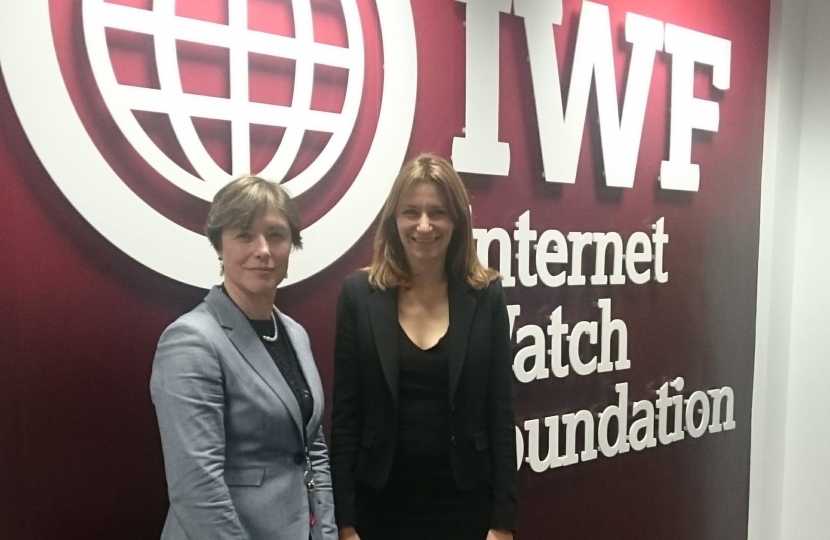
In her column for the News, Lucy Frazer, MP for South East Cambridgeshire, talks about raising awareness of internet safety among the young and how the forthcoming Digital Economy Bill will help.
"Last week we marked 'Safer Internet Day'. Internet safety and the risks to children from a large range of potentially harmful or inappropriate content is something that concerns us all and is very much on my radar. The theme of Safer Internet Day 2017 was 'Be the change: Unite for a better internet' and that could, indeed, be the slogan of the Internet Watch Foundation (IWF), whose remit is to tackle illegal and inappropriate online sexual abuse content from around the world from their base in Histon.
"I had the privilege of visiting them a couple of weeks ago and getting to see how they go about tracking down and removing child sexual abuse content globally and criminally obscene adult content hosted in the UK. As well as searching the internet themselves, they provide a place for the public to report such content anonymously and help out those countries who, as yet, don't have such expertise.
"On their site is a reporting button which feeds directly to their expert analysts in Histon, who assess the reports and remove the content. Companies like IWF work to make the internet a safer place for us all as we spend more and more time online.
"Whereas IWF are dealing with highly illegal content, there is also a need to raise awareness about the risks to young people of exposure to harmful ‘legal’ online content.
"Our children are leading increasingly connected lives whether via their mobile phones (which research shows they are receiving at an increasingly younger age with 40% now getting a mobile before leaving primary school), tablets or computers. The internet is their primary source of entertainment and information and a vital part of their social lives. They are often way more tech savvy than we are but they are all too often not aware of the dangers they are exposed to online.
"The government is committed to improving and updating systems in place to protect children online in the same way that we have systems in place to protect them off line. Parents, guardians and teachers also play a vital role in helping with such online protection just as they instinctively do offline. We all need to be alert to making our children aware of the dangers of not using privacy settings on social media websites and apps or not turning off location services which then allow strangers to see where they are.
"Another area of concern is the availability and nature of online pornography that can negatively impact the way young people understand healthy relationships, sex and consent. This, alongside the likes of cyber bullying, sexting and inappropriate material in video games are all having a major impact on our children’s mental health.
"The forthcoming Digital Economy Bill will introduce age verification measures to protect children from viewing online pornography. Pornographic websites and apps will be required to have adequate age verification, equivalent to those the gambling industry already implements. Public Wi-Fi is now automatically filtered (since 2013) and pornography is blocked in many places that children regularly visit. Also following agreement with the Government, the four largest internet service providers now offer their customers family-friendly filters, which, since last year, are now turned on by default.
"In addition an awareness raising campaign about the risks to young people of exposure to harmful content online is in progress and The UK Council on Child Internet Safety (set up following Dr Tanya Byron’s 2007 review of risks to children in this area) is continually drawing together expertise and sharing best practice from multiple stakeholders (including IWF) in the internet safety arena.
"Keeping pace with this fast moving environment is, of course, an ongoing process, but with increasing awareness of the risks, increasing awareness of all of our responsibilities, the work of companies like IWF and steps taken by the Government, we can all “unite for a better internet.”